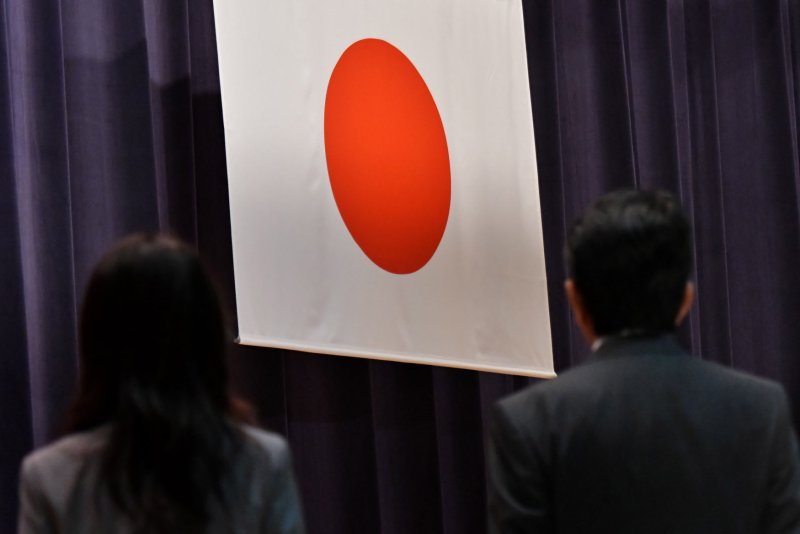1 of 2 | Japan removed South Korea from a list of preferred trading partners on Friday. Photo by Keizo Mori/UPI |
License Photo
SEOUL, Aug. 2 (UPI) -- Japan's cabinet decided Friday to remove South Korea from a "white list" of preferred trading partners, the latest move in a growing diplomatic dispute between the two countries over trade policies and wartime history.
Japanese trade minister Hiroshige Seko said the removal will go into effect on Aug. 28, Japanese news agency Kyodo reported.
The white list status allowed simplified export control procedures for Japanese manufacturers to ship products that could be potentially diverted for military purposes.
In a news conference, Chief Cabinet Secretary Yoshihide Suga said the decision was an issue of national security, calling South Korea's trade management system "insufficient."
"This review is necessary to appropriately implement Japan's export control system from the perspective of national security," Suga said.
Among the 27 countries on the list are several EU member states, the United States, Canada, Australia and New Zealand. South Korea, which was the only Asian country on the list, received the preferential trading status in 2004. It is the first country to be removed.
Japanese exporters will now have to get licenses to ship a wide range of products to South Korea, from chemicals to advanced sensors to electronic components.
South Korea's presidential office called an emergency cabinet meeting in response to the move.
In an address that was broadcast live on national television, South Korean President Moon Jae-in expressed "profound regret" at Japan's "reckless decision."
Moon called Japan's move "a selfish, destructive act that will cripple the global supply chain and wreak havoc on the global economy" and said Korea will respond with economic countermeasures of its own.
"As we have already warned, if Japan intentionally strikes at our economy, Japan itself will also have to bear significant damage," he said.
Calling Japan "an agressor," Moon vowed that Korea would rise to the challenge and "take a new economic leap" to surpass Japan.
"We will never again lose to Japan," he said.
Japan's decision to remove South Korea from the white list follows last month's move to tighten export restrictions on three materials used in manufacturing semiconductors and digital displays, crucial components for South Korea's high-tech manufacturing industry.
The breakdown in diplomatic relations stems from a South Korean Supreme Court decision last year that found that Japanese companies must provide compensation to their victims of forced labor during Japan's colonial occupation from 1910 to 1945.
Japan has argued that all reparations claims were resolved during the 1965 accord that normalized bilateral relations between the two countries.
A movement to boycott Japanese products has been gaining steam in South Korea over the past month, targeting everything from beer to luxury cars to travel to Japan. Some 65 percent of consumers say they are taking part, according to a recent poll.
South Korean Foreign Minister Kang Kyung-wha cautioned Thursday that Japan's decision to strip South Korea's preferential trade status would have "grave ramifications" and could trigger a review of the countries' bilateral security relationship.
Kang and her Japanese counterpart, Taro Kono, exchanged sharp words at a regional summit in Thailand on Friday, South Korean news agency Yonhap reported.
The South Korean diplomat said Japan's decision was done in a "very unilateral, arbitrary manner" and that it challenged the principle of free trade in the region.
Kono countered that South Korea would still maintain preferred or equal status with Japan's other trading partners in Asia, saying, "I don't know what is the source of the complaint by Foreign Minister Kang."
"Japan's necessary and legitimate review of its export control is fully compatible with the free trade regime, including the WTO agreement and relevant rules," he said.















